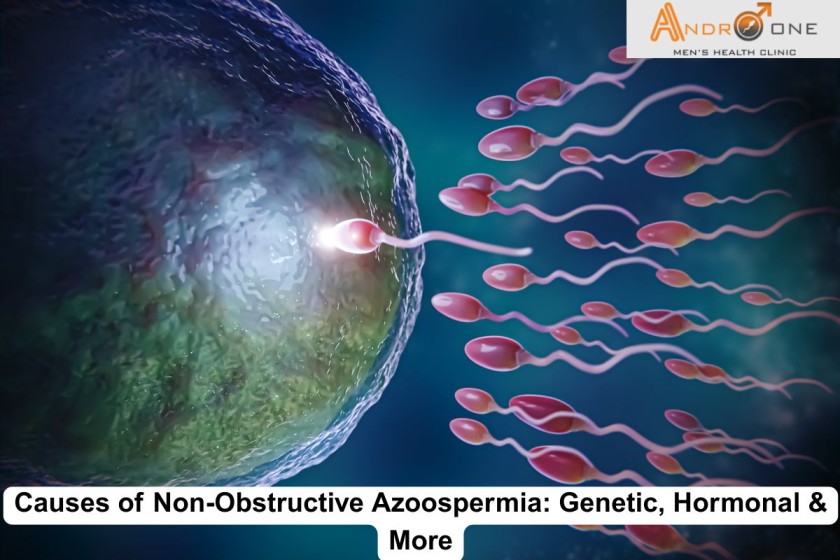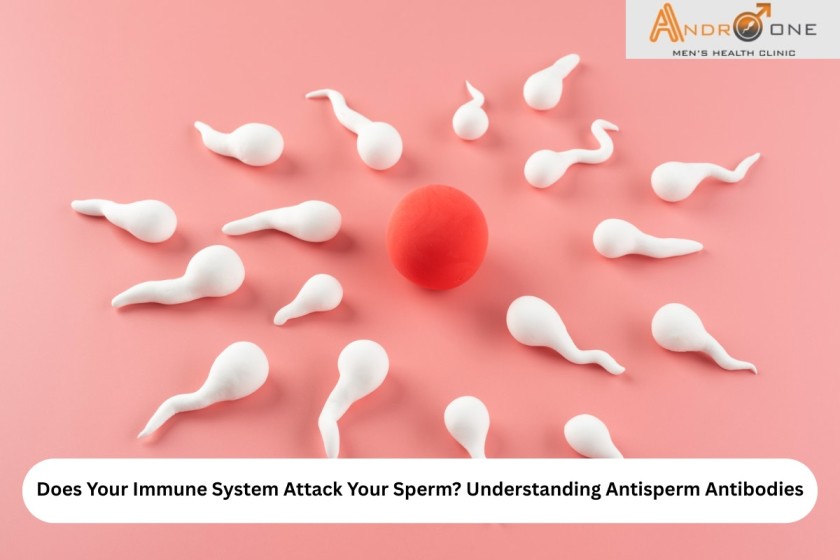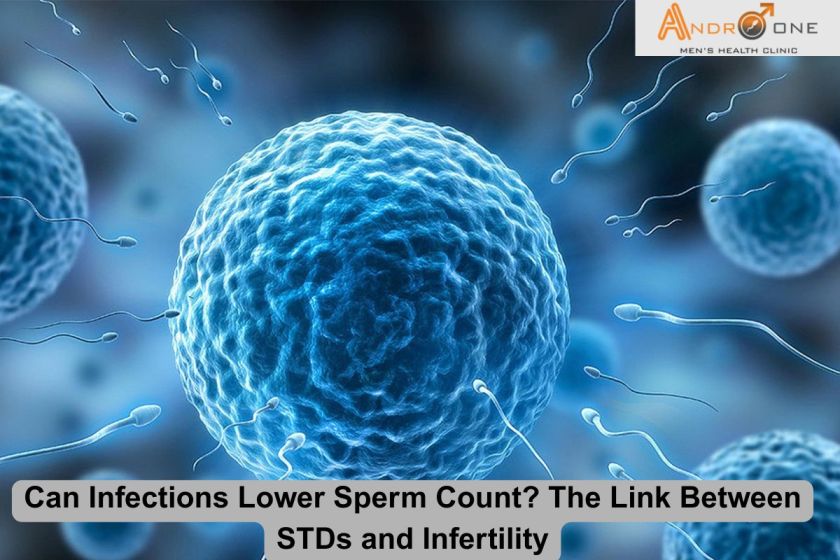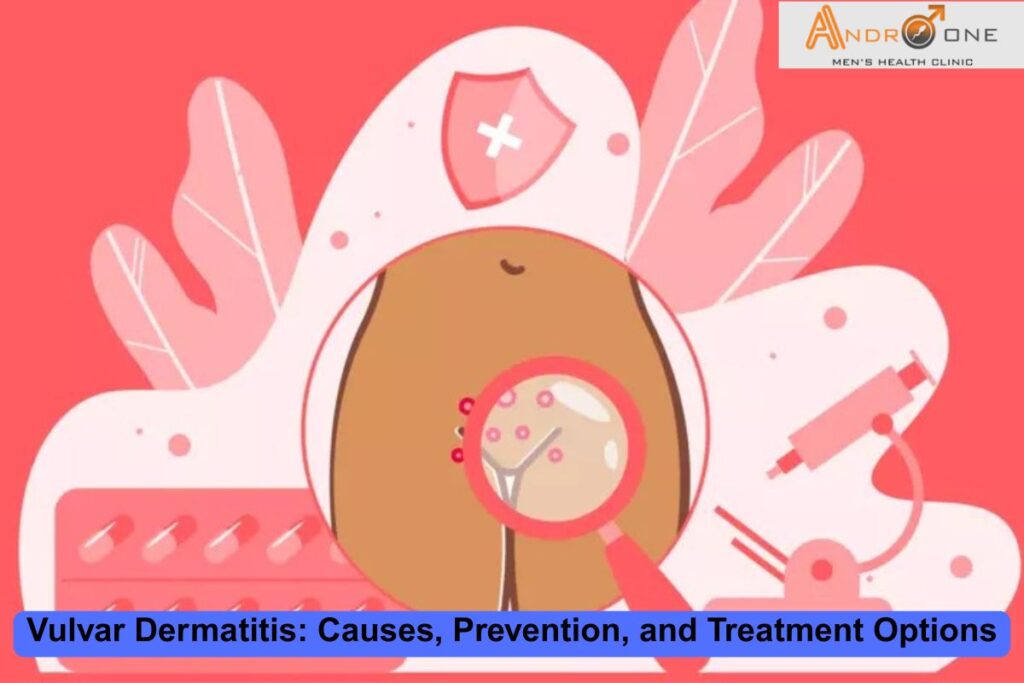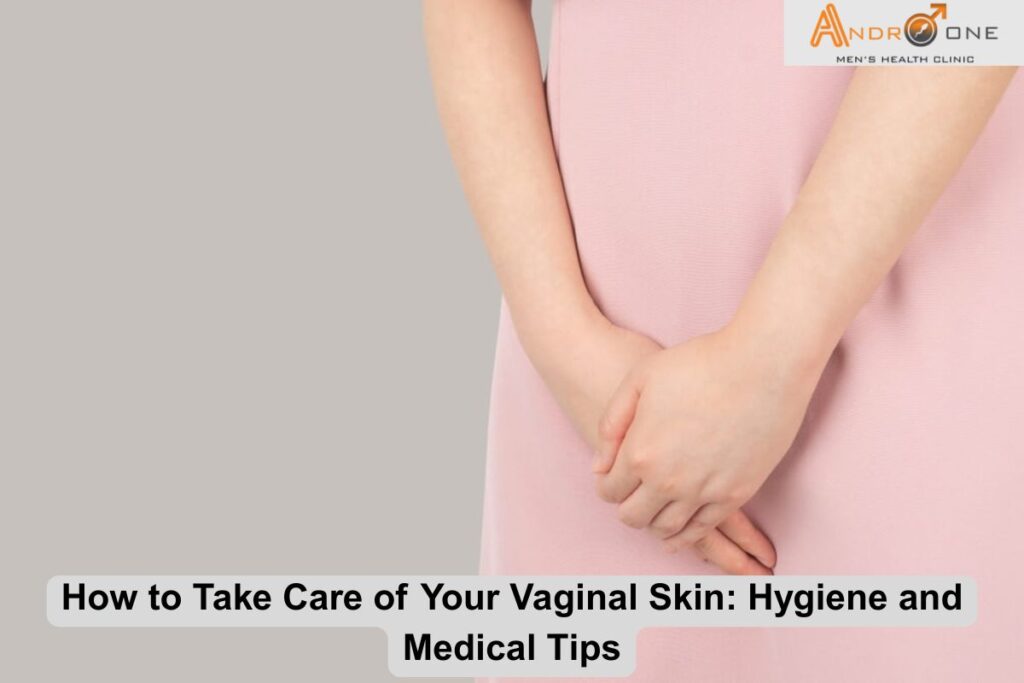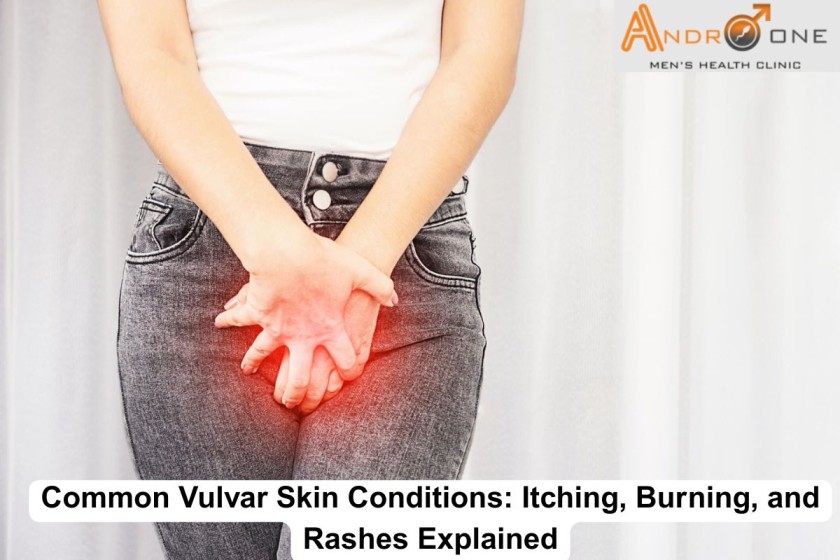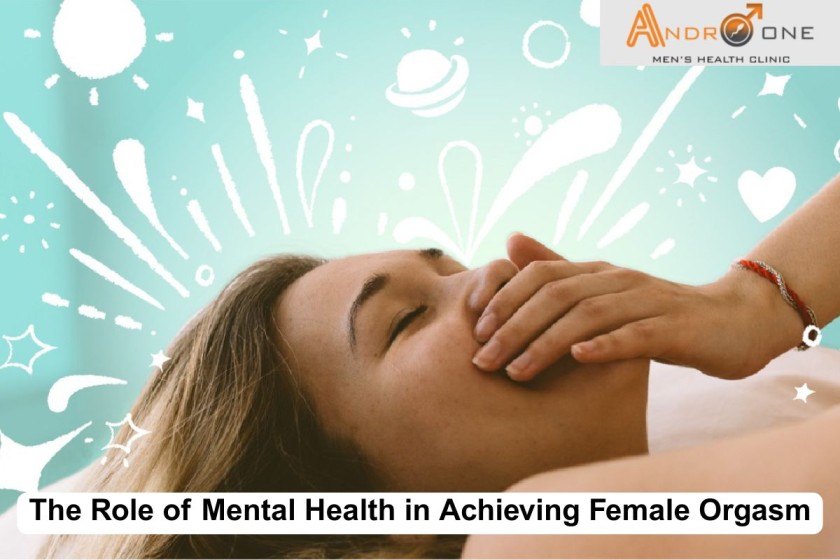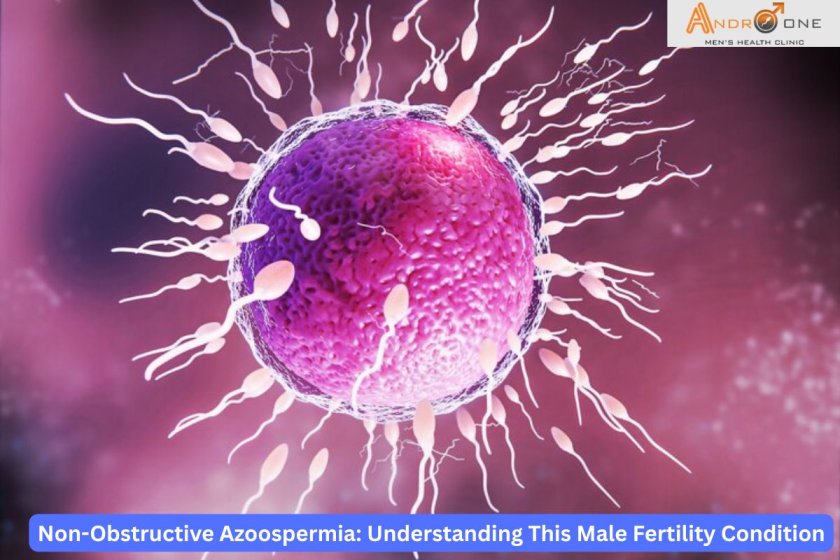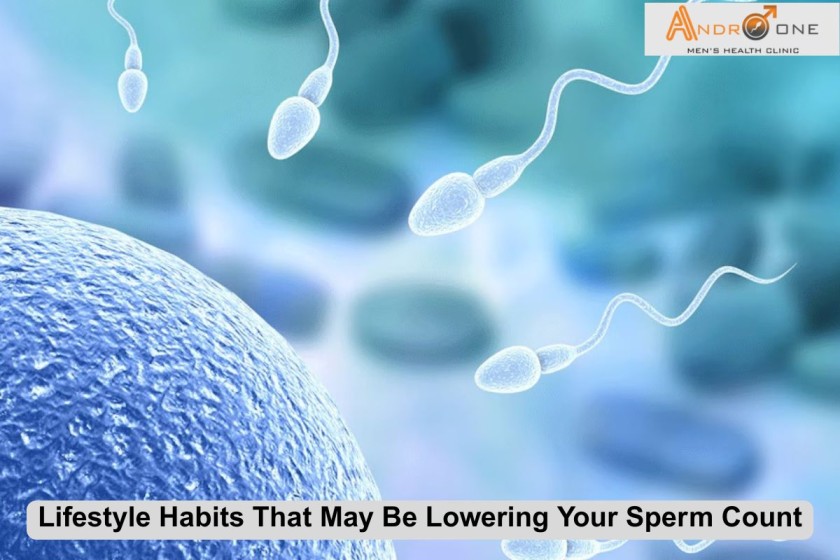Blog
Your blog category
What Are the Causes of Azoospermia? Hormonal, Genetic & Lifestyle Factors
Table of Contents Introduction Azoospermia is a health condition in which there is no sperm in a man’s semen. This is one of the primary causes of male infertility. If we are aware of the reasons, it can be diagnosed and cured easily. Most men silently endure this. However, with proper advice from a male infertility specialist in India, assistance can be made available. In this blog, we will discuss the reasons behind azoospermia in simple language. We will observe hormonal, genetic, and lifestyle conditions influencing male fertility. What is Azoospermia? Azoospermia is a condition of not having sperm cells in a man’s semen. Because of this, it is difficult for a man to impregnate naturally. It is one of the major causes of male infertility. This is the condition in about 1 of every 100 men. 10 to 15 out of 100 infertile men have Azoospermia. Most of them do not even know that they have this until they try to have a child. Moreover, it is important to identify the specific cause of azoospermia. This helps medical professionals in deciding on proper medicine. Some can be cured by drugs, surgery or life amendments. Initial diagnosis and professional assistance can increase the possibility of becoming a father. Types of Azoospermia There are two broad types: Both of them have several causes and treatments. Men can be directed towards correct diagnosis by consulting the best andrologist in Namakkal. Hormonal causes of Azoospermia Hormones are accountable for sperm development and male reproductive activity. The disturbance of hormone balance leads to azoospermia. Most critical hormones that take on roles are Reasons due to hormone issues are Imbalance in hormones is brought about due to disease, injury, or drugs. Moreover, hormonal evaluation is a very important component of fertility tests at any men’s sexual health clinic in Tamil Nadu. Genetic causes of Azoospermia Fertility in males has genetics included in it. Certain men are born with defects in sperm production. Some of the most common genetic causes include Genetic issues are usually identified by tests that specialize. Hence, men with azoospermia must seek genetic counseling. It is accessible with the best sexologist in Salem and other fertility specialists. Lifestyle factors affecting Azoospermia There are many lifestyle problems that can impact the sperm’s health. They include: Changes in a healthy lifestyle can promote fertility. Additionally, erectile dysfunction treatment can improve with sexual health disorders. Other medical conditions linked to Azoospermia There are several medical conditions that can cause azoospermia. They are: With all these causes on their hands, doctors can offer personalized treatments. Moreover, men can go to the male infertility specialist in India to get the best treatment. When to see a specialist? Whenever a couple is unable to conceive even after trying for a year, then they should consult a doctor. Men need to see a specialist in case of erection or ejaculation problems. A history of groin injury, surgery, or infection is also the cause of treatment. A man may have an underlying genetic condition or signs of endocrine disease, such as loss of libido or tiredness. These may impact the health of sperm. Pre-early consultation with a physician can lead to becoming a father. A checkup with the best andrologist in Namakkal or a men’s sexual health clinic in Tamil Nadu can establish the actual issue and initiate proper treatment without waste of time. Treatments options Treatment varies on the reason behind azoospermia. Some of the treatment options include For other disorders like premature ejaculation, specialized care like Premature Ejaculation Cure in Namakkal can also help sexual health alongside fertility. Conclusion Azoospermia is a tough issue but one that can be treated properly. Hormonal, genetic, and lifestyle factors are all contributory factors for azoospermia. Understanding the reason behind it makes men do the right thing about treatment. Therefore, professionals like the best sexologist in Salem and the male infertility specialist in India give complete assistance. Early diagnosis and treatment make it possible to have a baby. Living healthy and having the right medical care go along together for the desired outcome. FAQs 1: What is Azoospermia? Azoospermia occurs when there is no sperm in a man’s semen, which makes it difficult to conceive naturally. 2: Can Azoospermia be cured? Yes, based on the underlying cause, Azoospermia can be treated through reproductive techniques such as drug, surgery, or IVF or ICSI. 3: Why does Azoospermia happen to men? Azoospermia may be caused by hormonal problems, genetic, pre-transition, lifestyle, or obstruction of the genital tract.
Causes of Abnormal Sperm Morphology: Genetics, Lifestyle & More
Table of Contents Introduction Sperm morphology refers to the shape and structure of sperm cells. Normal sperm contains an oval head and a tail that is long for correct movement. An abnormal sperm morphology takes place when the majority of sperm are not of normal shape. Male infertility can result from this. It should be noted for its causes so that treatment can be given. Lifestyle and genetics along with other factors contribute immensely to this. Therefore, if you know the root cause, you can get the correct assistance. In case you are suffering from such problems, you can meet with the best sexologist in Salem or a male infertility specialist in India and get your condition resolved. They offer customized treatment for male sexual health. What is sperm morphology? The sperm is specifically shaped so that it can move quickly and penetrate the egg, making it fertilized. According to research, you will get about 39 million sperm per ejaculation. Among these millions of sperm, most will be irregular in shape or size, lacking a normal head or length. That is fine. It only requires a single sperm to fertilize an egg. To navigate this single sperm and successfully fertilize, millions of sperm go on the fallopian tube, and win the most difficult of them. Therefore, among these millions of sperm, you only require a fraction of them to be of the proper shape and size, like proper sperm morphology, for a successful pregnancy. However, in the case of a couple facing problems in conceiving, a normal semen analysis is done to comprehend sperm morphology. The semen sample is examined under the microscope to comprehend morphology. They must have an oval -shaped head, a midpiece and a tail to be healthy. If this head is not normal size or if there is no tail, the sperm is unusually shaped. The absence of a normal head will impair the sperm’s capacity to penetrate the egg to be fertilized. Additionally, the absence of a tail will impair its capacity to swim within the fallopian tubes to the egg. Common causes of abnormal sperm morphology Multiple causes lead to sperm abnormalities. These are genetics, lifestyle, and the environment. Let’s discuss each cause. Genetic Causes Genetics are essential in deciding sperm quality. Certain men inherit genes responsible for influencing sperm shape. Examples are These genetic issues lead to deformed sperm that won’t easily fertilize eggs. If you are experiencing this, a sexual medicine expert in Tamil Nadu can help you. Lifestyle Choices Your everyday habits influence sperm morphology significantly. Damaging habits are Smoking infuses your body with toxins that hurt sperm DNA. Alcohol decreases sperm quantity and form. Vitamin deficiencies, such as zinc and folic acid deficiencies, damage sperm. Stress alters hormone levels, affecting sperm quality. Environmental Factors The environment you are exposed to can damage sperm shape. Damaging exposures are: These toxins spoil the production of sperm in the testis. Men working in a toxic environment should be cautious. For professional guidance, consult a men’s sexual health clinic in Tamil Nadu. Medical Conditions Some diseases and infections also lead to abnormal morphology of sperm. These include: Varicocele diminishes blood supply, increasing testicular temperature. This damages sperm shape and quantity. These conditions can be treated with better sperm quality. A male infertility expert in India may diagnose these causes accurately. How does abnormal sperm morphology affect fertility? Abnormal sperm morphology decreases fertility by: Nevertheless, some abnormal sperm shapes do father children. But it is less likely to happen, and fertility therapy might be required. Diagnosing abnormal sperm morphology Physicians diagnose sperm morphology with the help of semen analysis. It involves: A sample is taken after 2-5 days of not doing “it.” Sperm experts examine the sperm under a microscope. This test allows physicians to comprehend the issue of fertility clearly. Treatment options and specialist help Treatment depends on the cause of abnormal sperm morphology. Options include It is advisable to consult a sexual medicine specialist in Tamil Nadu or the top sexologist in Salem. They provide expert treatment, including premature ejaculation cure in Salem if applicable issues are present. Tips for improving sperm morphology You can improve your sperm size by following some healthy habits every day. First, eat a balanced diet full of fresh fruits and vegetables. These foods contain antioxidants that protect your sperm from damage. It is also important to avoid smoking and drinking too much alcohol. Both habits can damage your sperm and reduce your fertility. Try doing some exercise daily to keep your body in a healthy state and keep your body in good condition. But don’t overheat your testicles, so don’t sit for a long time with a laptop on your lap or take hot baths. This is really effective to deal with your stress. You can try resting exercises to calm your brain for progressive breathing, meditation, or even a few minutes. Keep away from work or home exposure to toxic chemicals. They can interfere with sperm quality. Finally, do not forget to have regular medical checkups in order to detect any health issues on time. Drinking water in large amounts and sleeping enough also keeps your sperm healthy and active. Conclusion Abnormal morphology of the sperm means there are many abnormally shaped sperm. This can be one of the most common causes for infertility. There can be many possible reasons for this, including genetics, poor lifestyle, hormonal issues or toxins in the environment. Luckily, it has many treatable types. If you feel that you have an issue, it is very important that you consult a doctor at an early stage. Proper treatment at the right time can be a game-changer. Therefore, meeting the top sexologist in Salem or a reputed male infertility specialist in India will determine the root cause and treat you accordingly. Furthermore, a few men have gained by implementing some easy changes in their lifestyle. Being healthy, remaining calm, and abandoning bad habits really works. Sometimes medical treatment is also necessary. But with proper treatment and counseling, most of the men




